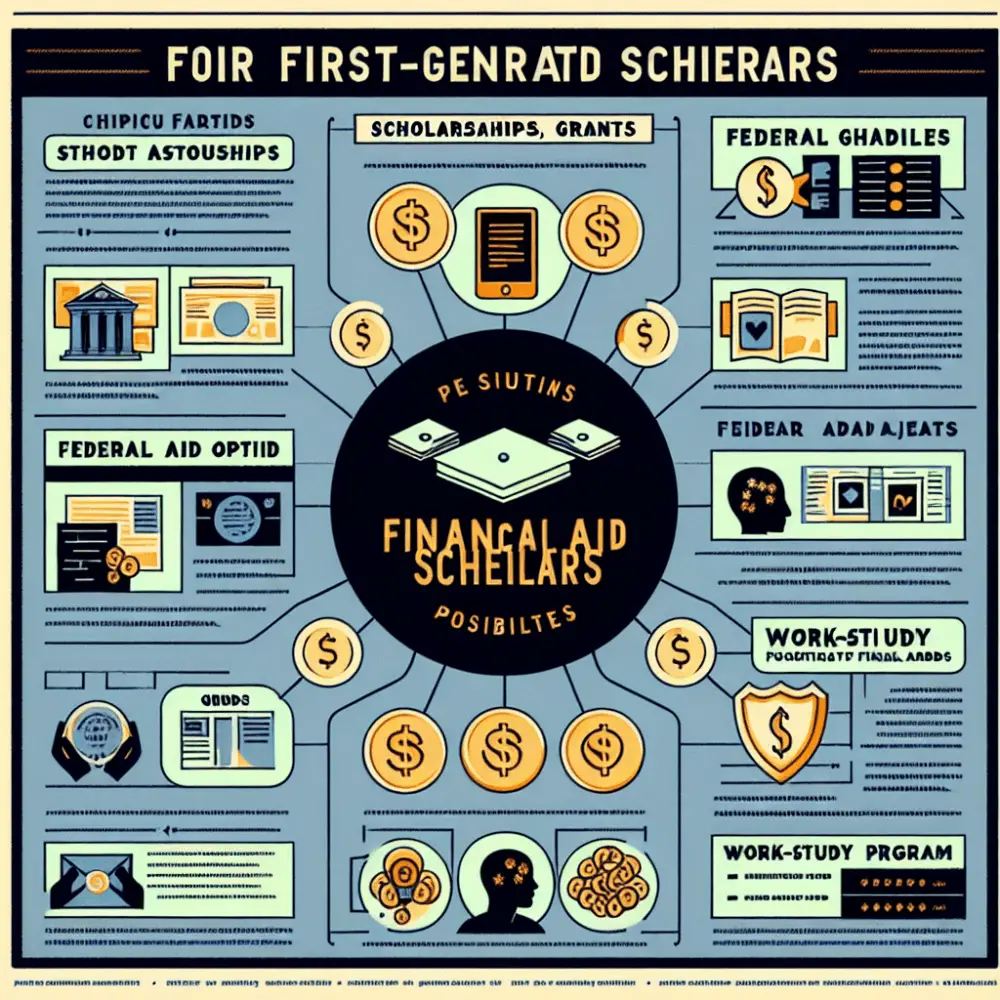
First-generation scholars often face unique challenges when navigating the world of higher education, including finding ways to finance their education. While pursuing a college degree can be a fulfilling experience, the cost of tuition, books, and living expenses can add up quickly. Fortunately, there are financial aid options specifically designed to help first-generation scholars alleviate some of these financial burdens.
In this article, we will explore various types of financial aid options geared towards first-generation scholars. From scholarships and grants to work-study programs and student loans, there are multiple ways for first-generation students to fund their education and achieve their academic goals. By understanding the different types of financial aid available, first-generation scholars can make informed decisions about how to best finance their college education. Let’s dive into the world of financial aid for first-generation scholars!
Scholarships
One of the most popular forms of financial aid for first-generation scholars is scholarships. Scholarships are funds that do not need to be repaid and are typically awarded based on merit or specific criteria set by the scholarship provider. There are a wide variety of scholarships available specifically for first-generation students, ranging from those offered by colleges and universities to private organizations and foundations.
Grants
Grants are another form of financial aid available to first-generation students. Unlike loans, grants do not need to be repaid and are typically awarded based on financial need. The Federal Pell Grant is one example of a grant program that provides funding to low-income undergraduate students. Other grant programs may be offered at the state or institutional level.
Work-Study Programs
Work-study programs provide an opportunity for students to earn money while gaining valuable work experience. These programs are typically funded by the federal government and offer part-time employment opportunities both on and off campus. First-generation students can apply for work-study programs through their college or university’s financial aid office.
Student Loans
While scholarships, grants, and work-study programs do not need to be repaid, student loans are a form of financial aid that must be repaid with interest. Federal student loans offer low interest rates and flexible repayment options, making them a popular choice for many first-generation students who need additional funding for their education. It is important for students to carefully consider their loan options and borrow only what they need to cover their educational expenses.
Financial Aid Tips for First-Generation Scholars
- Start Early: Begin researching financial aid options as soon as possible to maximize your chances of securing funding.
- Fill Out the FAFSA: The Free Application for Federal Student Aid (FAFSA) is crucial for determining your eligibility for federal student aid programs.
- Explore Scholarships: Take advantage of scholarship opportunities specifically targeted towards first-generation students.
- Consider Work-Study: Work-study programs can help you earn money while gaining valuable work experience.
- Borrow Wisely: If you need to take out student loans, borrow only what you need and make sure you understand the terms of repayment.
FAQs
- How can I find scholarships specifically for first-generation students?
- You can search online scholarship databases like Fastweb or Scholarships.com, as well as check with your college or university’s financial aid office for local scholarship opportunities.
- What is the difference between subsidized and unsubsidized federal student loans?
- Subsidized federal student loans do not accrue interest while you are in school or during deferment periods, whereas unsubsidized federal student loans begin accruing interest as soon as they are disbursed.
- Can I qualify for both grants and student loans?
- Yes! Many first-generation students receive a combination of grants, scholarships, work-study funds, and student loans to fund their education.
Conclusion
There are numerous financial aid options available specifically for first-generation scholars who may require additional support in financing their college education. By exploring scholarships, grants, work-study programs, and student loans, these students can create a comprehensive plan to fund their academic pursuits without being overwhelmed by the cost of higher education. With careful planning and research into available resources, first-generation scholars can achieve their educational goals without being held back by financial constraints.


















